My Brother Spent Years Hating the “Neighbour” Who Sent Him To Jail — It Was Me All Along
Kunle’s arms wrapped around me, and guilt surged like a wave I couldn’t escape. It wasn’t his strength that took my breath away; it was everything unsaid between us.

Source: Getty Images
We stood outside our mother’s small family compound in Surulere, the evening breeze carrying the smell of roasted corn from the roadside. He had just finished fixing the leaking tap, smiling in that gentle, sober way that still felt strange on his face.
“Amara,” he said softly, “I still think about that neighbor who called the police. I hated her for years.”
My heart froze.
He looked off toward the street, where children chased a football under the orange glow of streetlights.
“But now I think maybe that call saved my life. Whoever she is, I forgive her.”
Tears burned behind my eyes. I wanted to speak, to tell him it was me — the terrified little sister hiding under the bed that night. But all I could whisper was, “She must be relieved to hear that.”

Read also
“Ned Nwoko is soliciting peace and acting differently online”: Doris Ogala drags senator over Regina
He smiled and nodded.
“She should be.”
And in that smile, I knew he already knew.
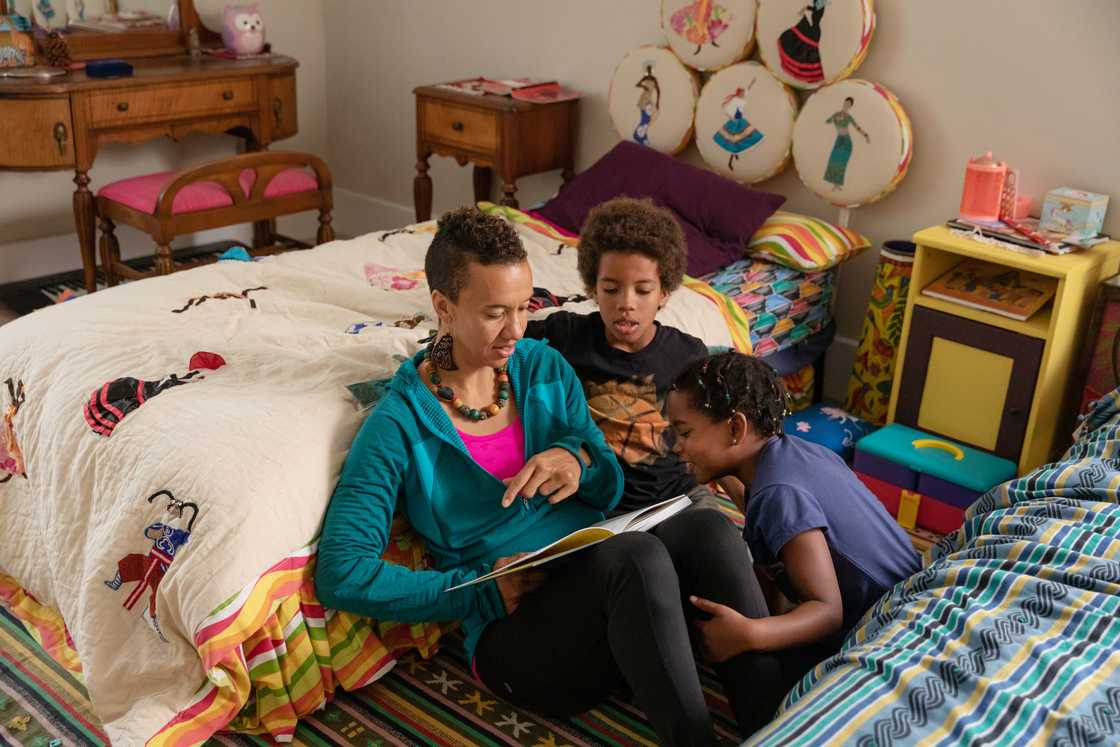
Source: Getty Images
I grew up in a small two-bedroom house with my mother and my older brother, Kunle. Our father left when I was nine. He said he was going to Ibadan for work, but never returned.
At first, Mum told us he would return when things got better. But after two years, even she stopped believing that story. She started selling tomatoes and onions at Oyingbo Market, leaving early and coming home tired, her hands red from counting coins.
Kunle was sixteen when Dad left. He changed almost overnight — from my playful brother who built toy cars with sardine tins to a withdrawn, angry teenager who blamed everyone for his pain.
He started drinking before he finished secondary school. It began with small sachets of local gin behind the house with friends, then bottles of ogogoro. He would stagger home, his voice loud, sometimes singing, sometimes shouting.

Source: Getty Images
At first, Mum begged him to stop.
“Kunle, you’re killing yourself,” she would cry.
He’d laugh and say, “It’s better than being like you, selling onions.”
When I turned fifteen, I began staying longer at school to avoid his outbursts. Teachers called me quiet, but they didn’t know silence was how I survived.
Every time Kunle came home drunk, the air in our house turned heavy. He would slam the doors, curse at the ceiling, and sometimes kick the old stool that our father had made before leaving. Mum would hide in her room. I would sit on my bed, trembling, waiting for it to pass.
Then came the nights he got violent.
He broke a window because Mum refused to give him money. He punched the wall till his knuckles bled. Once, he threw her woven market basket across the compound, spilling everything. She didn’t fight back — she just picked up the tomatoes one by one, tears falling quietly.

Source: Getty Images
I started sleeping holding my phone. I didn’t know what to do with it, but it felt like protection.
Kunle wasn’t always bad. He helped Mum carry heavy loads or cooked rice and stew on his sober days. Sometimes, he’d sit beside me and ask how school was. But those moments never lasted. By evening, the bottles would return.
Mum stopped praying aloud because he mocked her. She began whispering her prayers at dawn, her voice low, tired, afraid of waking him.
One night, I overheard her tell Aunty Ngozi on the phone, “Kunle will kill me one day, but I can’t throw him out. He’s my son.”
That sentence stuck with me. It was love, yes, but it was also surrender. And I knew that if anything ever happened, I would be the one to save us.

Source: Getty Images
The night it happened was a Thursday. I remember because I had a maths test the next morning.

Read also
Burna Boy halts US show, orders man to take sleeping babe home before performing, video trends
Just after 9 p.m., I heard Kunle’s heavy footsteps outside the gate. The sound alone made my stomach twist. He kicked the metal gate open and stumbled in, reeking of alcohol.
“Maaa!” he shouted. “Why did you tell Aunty Ngozi I’m useless?”
Mum came out of the kitchen, her hands trembling.
“Kunle, please lower your voice. The neighbors—”
“Let them hear!” he barked, slamming his hand against the wall. “You think I don’t know what you say behind my back?”
He shoved a stool, sending it crashing.
I froze in my room. Through the door, I saw his shadow pacing.
Mum kept pleading softly, “Kunle, I beg you. Don’t do this tonight.”
He grabbed her wrist, and she screamed.

Source: Getty Images
The noise of breaking glass filled the house, followed by a thud. My heart pounded so hard I thought it would explode. I could hear the clatter of pots, the scrape of a chair being pushed. Mum’s voice turned into sobs, pleading between gasps.
Everything inside me screamed to run, but my legs felt glued to the floor. Fear wrapped around me like a rope.

Read also
Regina Daniels sends digs to Ned Nwoko, celebrates massive love from public: “Jokes on you”
I crawled under my bed, my heart racing. I didn’t think; I just acted.
I dialed 112 — the police emergency line.
My voice shook. “Please, my brother is hurting my mother. We live near Surulere Bus Stop. Please come.”
They told me to stay calm.
Minutes later, I heard sirens in the distance.
Kunle was still shouting when two officers burst through the gate.
“What’s this nonsense?” one barked.
Kunle turned on them. “Who called you? You can’t enter my house!”
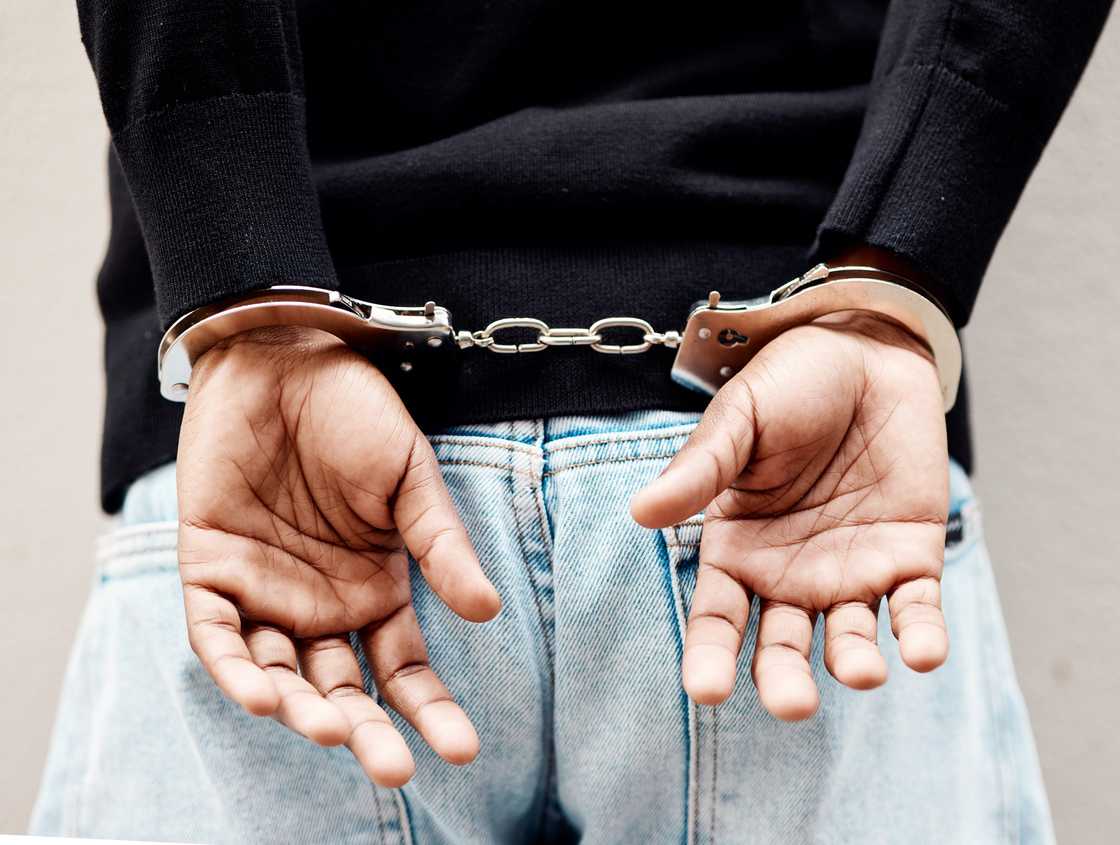
Source: UGC
Before they could explain, he pushed one officer.
The next thing I heard was the crack of a baton.
Mum screamed again.
I covered my ears and sobbed under the bed. His shouting mixed with the officers’ voices — sharp, commanding.
“Calm down!” one yelled. “You’re under arrest!”
But Kunle wouldn’t listen.
He struggled and cursed, kicking against the tiled floor. My mother begged them to stop, her voice hoarse. I could see their boots through the gap under my bed, the scuffle of movement, the metallic click of handcuffs. It felt like the whole world was collapsing in our small house.
They wrestled him down, cuffed him, and dragged him out as he kicked and cursed.
“It was you!” he shouted. “You called them! I’ll never forgive you!”
But he didn’t see me hiding.

Source: Getty Images
The next morning, the house was silent. Mum sat in the living room, her face swollen from crying.
“They said he’ll be charged,” she whispered. “Two years.”
She didn’t ask who called. She didn’t want to know.
The neighbors talked for weeks. Some said it was long overdue. Others said family matters should stay private.
But I couldn’t sleep.
Every night I saw his face as they took him away — furious, betrayed. Sometimes I’d wake up to the sound of sirens in my dreams, thinking it was happening again.
I’d see Mum stirring pap in silence in the kitchen, her shoulders slumped. Once loud and full of arguments, our house now echoed with guilt.
I thought I had saved her — but it also felt like I had destroyed my brother.

Read also
“I have nothing left”: Daddy Fresh fights for life, speaks from hospital bed in emotional video
Two years passed slowly.
Mum visited him once every few months. I refused to go. I told her I was afraid, but the truth was worse — I was ashamed.
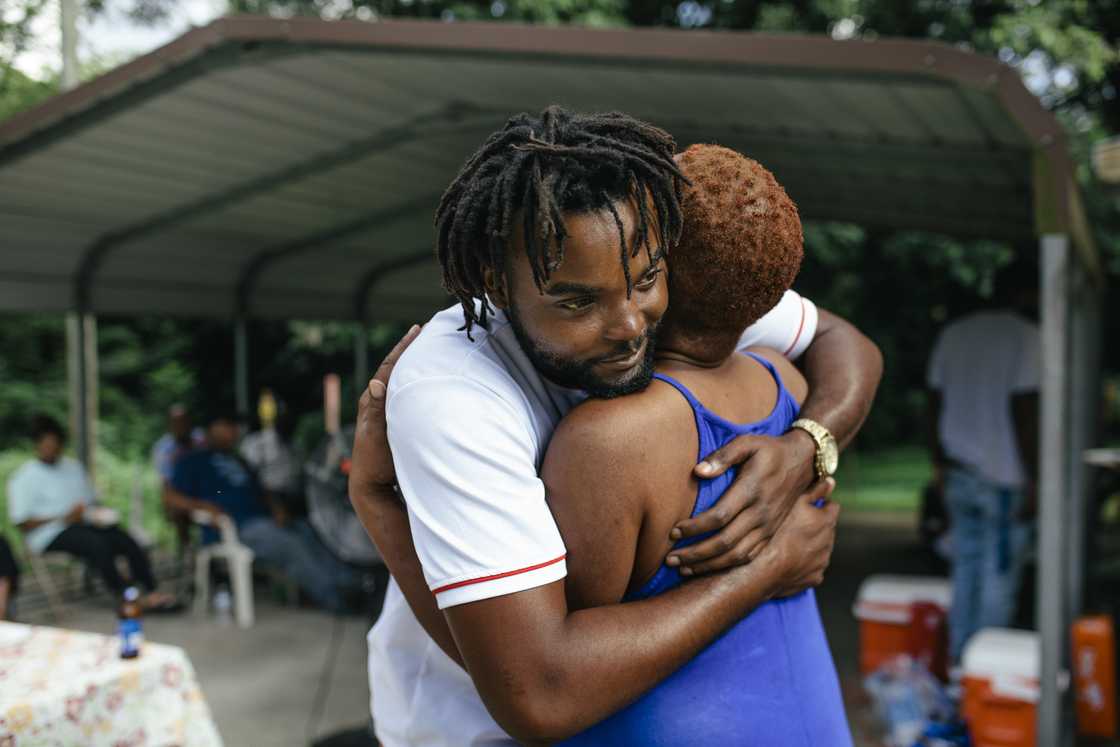
Source: Getty Images
When Kunle came home after his sentence, he looked different. Thinner, quieter, eyes clearer.
He hugged Mum for a long time and said, “I’m done with the bottle.”
At first, we didn’t believe him.
But weeks turned into months, and he kept his promise. He got a job with a plumbing company, started attending church, and even helped Mum repair the kitchen roof. Neighbors whispered, “Prison changed him.”
Sometimes I’d catch him sitting on the porch, staring at the street.
One evening, he said, “If I ever find that neighbor who called the police, I’ll thank her — after I tell her what she cost me.”
I froze.
He went on, “Two years inside wasn’t easy, Amara. But maybe it was what I needed. Still, that woman took my freedom.”

Read also
Woman reacts to Regina Daniels’ video on marital crisis, shares deep observation about actress
I smiled weakly. “Maybe she was just scared.”
He shrugged. “Maybe. But I’ll never forget what it felt like, being locked up while my mother suffered alone.”
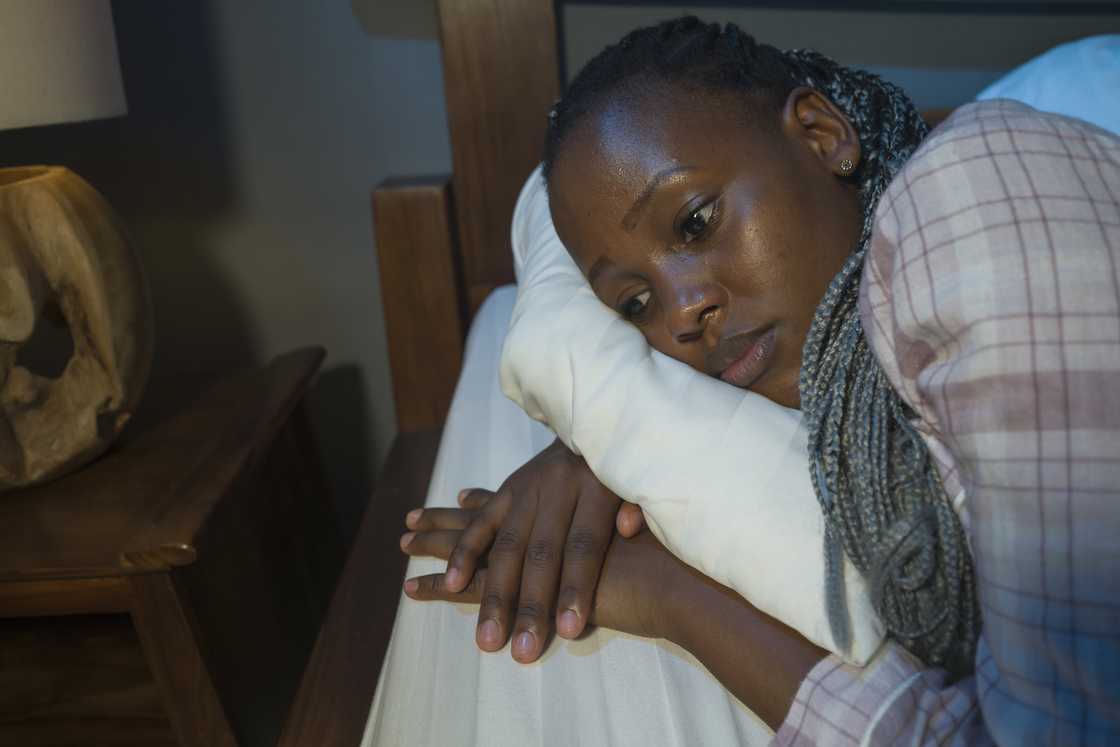
Source: Getty Images
That night, I lay in bed, replaying his words. The silence of our home felt too heavy, almost like it carried secrets of its own.
I had dreamt of this peace for years — yet I couldn’t rest.
Every sound of his footsteps outside my door made my heart thump, not in fear anymore, but in guilt.
The guilt ate me alive.
I wrote confessions in my diary, then tore them up. I wanted to tell him, but I lost the courage every time I looked into his calm eyes.
Sometimes I’d stand by his room, my hand hovering near the door, listening to him hum praise songs. He sounded so different — softer, almost peaceful. I wondered if he could ever forgive me if I told him.
Then I’d hear Mum laughing in the kitchen, and I’d remind myself that what I did kept her alive. Still, I couldn’t shake the thought that I stole his trust.

Read also
Man who knew suspect linked to late Ochanya’s case shares details about him: “He was feared”
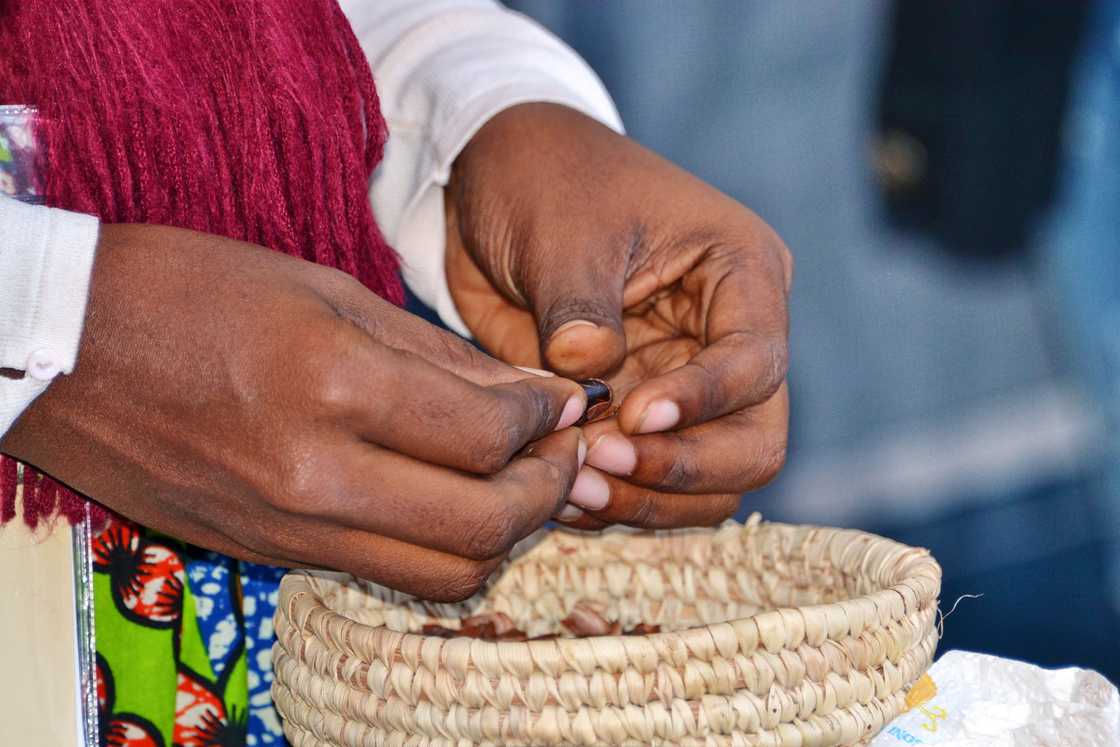
Source: Getty Images
One Sunday afternoon, we sat outside shelling peanuts. He said, “You know, I used to hate myself for what I did that night. Then I started hating whoever called the cops. But now…”
He paused.
“Now I think she might have saved both of us.”
I looked up, tears spilling. My lips trembled. “Kunle…”
He smiled sadly. “Whoever she is, I hope she’s at peace. I forgive her.”
The words landed like sunlight after rain — warm, unexpected, and too bright to face. My mouth opened, but no sound came. It felt like my soul had been seen, even though I hadn’t spoken.
My heart cracked open. I wanted to scream, It was me! But before I could, he reached out and touched my hand.
“You were always hiding that night, weren’t you?” he asked quietly.
I couldn’t answer.
He squeezed my hand gently.
“It’s okay, Amara. I know.”
From that day, things changed between us.
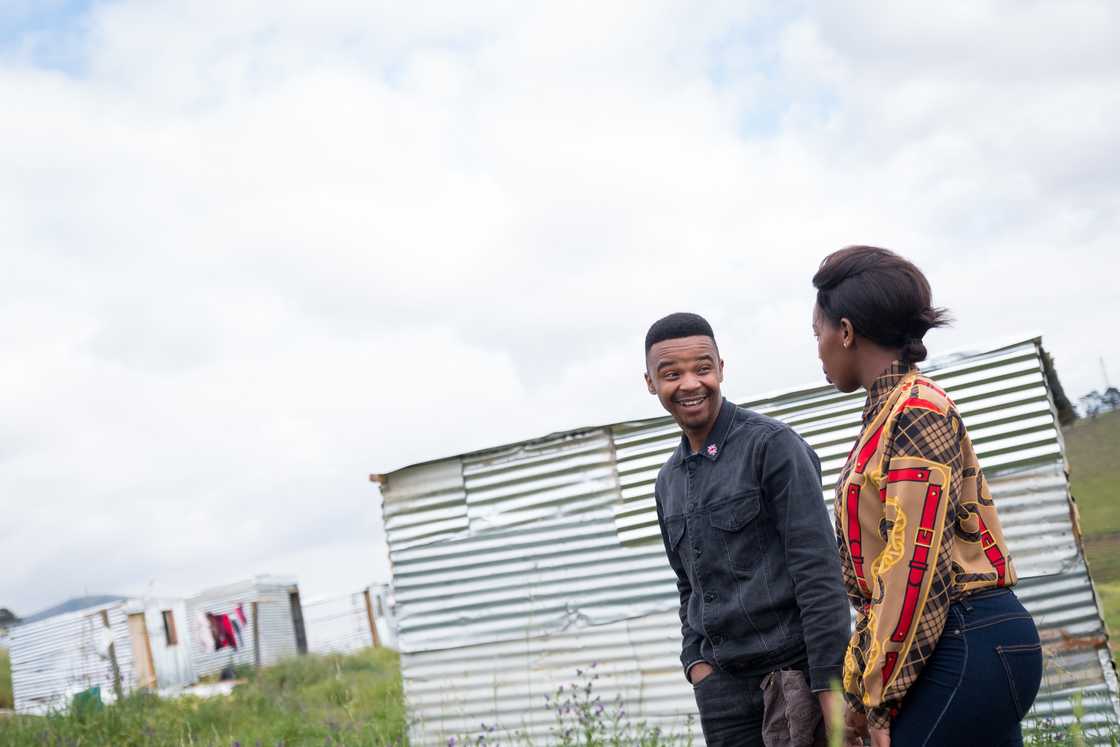
Source: Getty Images
We never said it aloud, but the silence became our forgiveness.
Kunle stopped avoiding me. He started bringing me boli after work, asking about my university classes. Mum smiled more often, her laugh returning little by little.
One evening, as we watched TV together, a local news story came on about a man arrested for domestic violence. Kunle turned to me and said softly, “You know, sometimes God uses strangers to do what family can’t.”
I nodded, blinking away tears. “Maybe the stranger wasn’t a stranger,” I whispered.
He smiled knowingly. “Maybe.”
Mum joined us with bowls of akpu and soup, saying, “At least the house is peaceful now.”
Peace.
The word felt sacred.
Sometimes I’d catch Kunle praying before bed, his voice low but steady. He prayed for Mum, me, and the unknown neighbor who had “saved” him.
Each time I heard that prayer, a lump would rise in my throat.
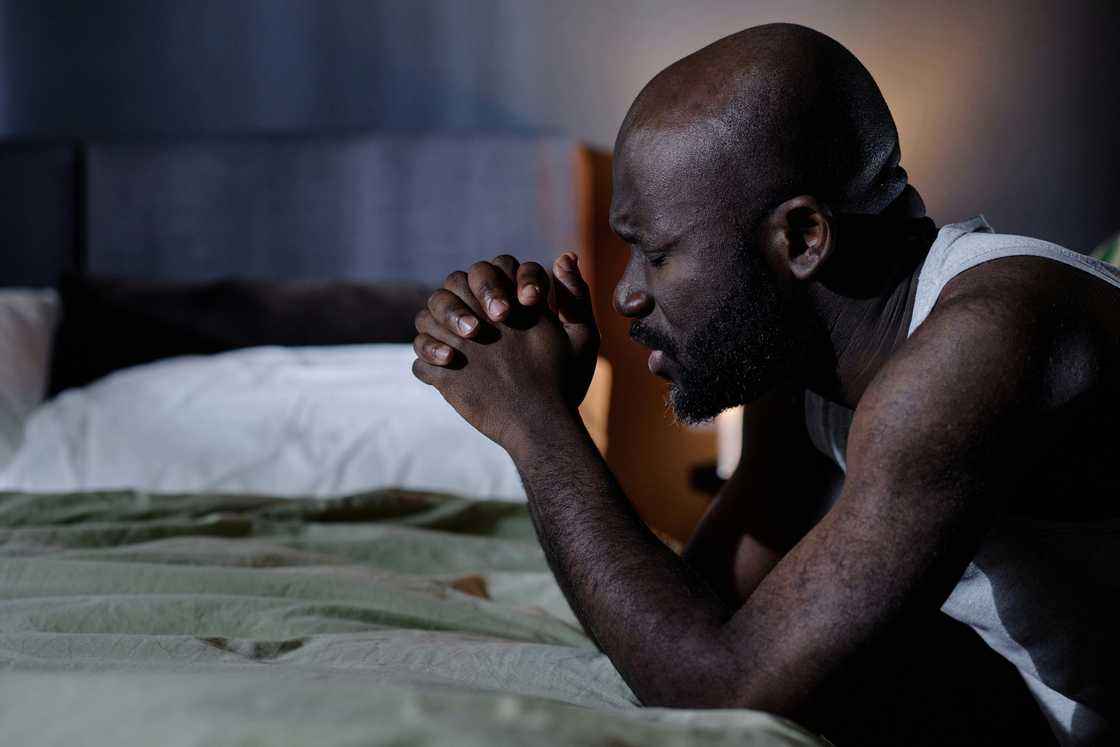
Source: Getty Images
There was something holy about his healing, which reminded me that people can grow out of their darkness if given a second chance.
A year later, Kunle started mentoring young boys at the church — kids who reminded him of himself. He told them, “You can’t change your past, but you can stop it from swallowing your future.”
I once went to one of his sessions, sitting quietly at the back. He didn’t know I was there. Watching him talk to those boys — some in worn uniforms, others barefoot — I realized how far he had come.
The same man who once shouted through the night was now helping others find peace. It felt like watching my brother being rewritten in front of my eyes.
One Saturday, I watched him speak to them under the mango tree near the church compound. His voice was calm, confident, full of redemption.

Read also
“I Was Alive,” the Billionaire Says — He Walks Into the Will Reading and Disinherits the Plotters

Source: Getty Images
When he saw me, he waved. For the first time, I waved back without guilt.
At home, I found the old diary pages I had once torn. I burned them in the kitchen sink, watching the ashes curl into nothing.
I realized forgiveness doesn’t always come in words — sometimes it’s in the quiet understanding that someone still loves you despite what you did.
That night, as the rain tapped against my window, I whispered my own prayer — not for forgiveness anymore, but for gratitude.
I was grateful that love, though bruised, had survived. I was grateful that our home was no longer ruled by fear. And I was grateful that sometimes, doing the hardest thing leads to the best ending.
Kunle came to my room and said, “Amara, thank you for never giving up on me.”
I wanted to ask, “How could I?” but my throat closed.
Instead, I hugged him.

Source: Getty Images
And for the first time since that night, I didn’t feel afraid.
Sometimes love hides in the hardest choices — the ones that break your heart in order to save it.
I used to think calling the police that night destroyed my family. But now, I see it was the only way to stop the destruction inside our home.
Kunle lost his freedom for two years, but he found himself.
Mum lost her peace for a while, but she gained her safety back.
And me? I lost my brother’s trust, but I earned his forgiveness.
Growing up, we’re taught to protect family at all costs. But what happens when protecting them means telling the truth — even if it hurts?
Sometimes, doing the right thing makes you the villain in someone’s story until time reveals you were the hero all along.
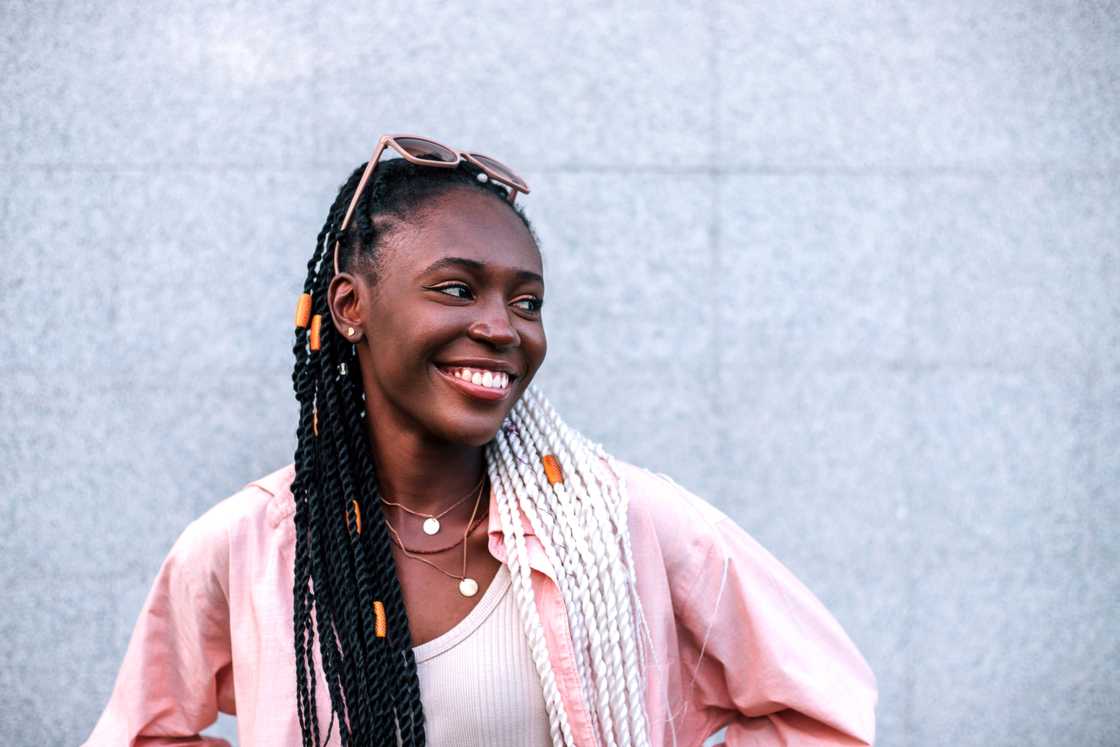
Source: Getty Images
Now, when I walk past the police outpost on my way to the market, I slow down. I don’t look at it with shame anymore, but with gratitude. That building reminds me of courage — the kind that trembles, cries, and still does what’s necessary.
I realize now that bravery doesn’t always look loud or proud. Sometimes, it’s a frightened teenage girl whispering for help in the dark.
I still hear Kunle’s voice sometimes, gentle and calm, saying, “Whoever called that night saved us both.”
Those words echo differently now. They remind me that love isn’t proven by silence, but by action.
We think saving someone means shielding them from pain, but sometimes it means allowing them to face it. True love has boundaries — even when those boundaries bleed.
And I know, deep down, that he was right.
Because love isn’t always quiet or kind — sometimes it comes as a siren in the dark.
And if life ever tests me again, I hope I’ll still choose the hard kind of love — the kind that tells the truth, even when it costs everything.
And so I ask, would you have made that call if you were me?
This story is inspired by the real experiences of our readers. We believe that every story carries a lesson that can bring light to others. To protect everyone’s privacy, our editors may change names, locations, and certain details while keeping the heart of the story true. Images are for illustration only. If you’d like to share your own experience, please contact us via email.
Source: YEN.com.gh









